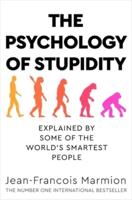Publisher's Synopsis
Game theory explains competitive behavior by working from the premise that people are self-interested. People don't just compete, however; they also cooperate. John Roemer argues that attempts by orthodox game theorists to account for cooperation leave much to be desired. Unlike competing players, cooperating players take those actions that they would like others to take-which Roemer calls "Kantian optimization." Through rigorous reasoning and modeling, Roemer demonstrates a simpler theory of cooperative behavior than the standard model provides.










